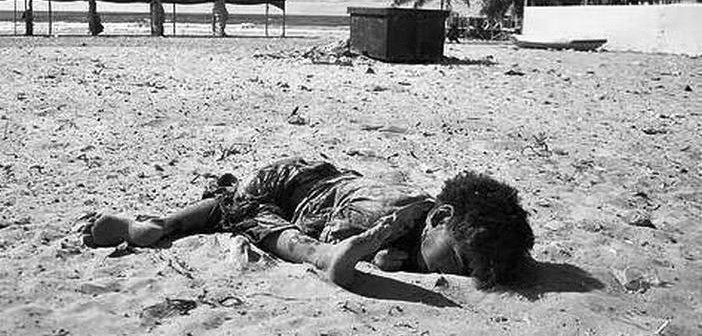The Paris attacks of 13 November 2015 have spurred overwhelming responses of solidarity in addition to widespread reactions condemning the tragic events. What is clear about these responses, however, is enduring European double-standards.
But the aim of this article is not to illustrate the ways in which the loss of life to violence is made visible or invisible in the public sphere (since the importance of subjective experiences cannot be ranked); nor to discuss the global empathy gap between Paris and Beirut (not to mention Palestine, Syria, Nigeria, Iraq, Afghanistan, Yemen, Libya, Pakistan, and Somalia); nor to provide answers as to why attacks in the 11th arrondissment of Paris have received more attention than the bombings in Beirut’s southern suburb of Burj al-Barajneh—not because these issues are not important in their own right, but rather because it has been discussed at length elsewhere.
However, the issue of counter-terrorism and migration of border control and the reality of ‘Fortress Europe’ has not received enough coverage and analysis. I will therefore examine some of the EU’s counter-terrorism policies in their response to the Paris attacks, particularly the security-driven rhetoric that has been used to justify coercive and ostracizing practices against so-called ‘outsiders’ or ‘potential dangers.’ It is important to note that these counter-terrorism policies specifically target terrorist acts and intentions carried out by selective individuals and groups.
Some of the EU policyinitiatives and responses that have followed seem to give in to the claims that the strengthening of external border controls and the monitoring of cross-border movements of persons are necessary to respond to the attacks. Etienne Schneider, Luxembourg’s Deputy Prime Minister and Minister of Internal Security and Defense, stated the following during an informal meeting held by the Justice and Home Affairs Council (JHA) on 20 November 2015: “The current legislative framework allows for systematic and coordinated checks at external borders, including on individuals exercising their right to free movement.”
These claims or assumptions, nevertheless, challenge the principle of free movement and raise major concerns regarding their compatibility with the Schengen framework, particularly in a post-Lisbon Treaty setting. Furthermore, they have proven to be pretty futile in the fight against ‘terrorism’, while also standing in contradiction with the privacy and fundamental rights and legal standards developed by the Court of Justice of the European Union (CJEU) in recent rulings; Digital Rights Ireland and Schrems. But what do we exactly mean by that?
Shackling freedoms on the count of ‘terrorism’?
The main problem, as explained by Didier Bigo, professor at King’s College London Department of War studies and MCU research professor at Sciences-Po Paris, is that acknowledging the correlation between the cross-border movements of persons and “terrorism” “could lead to a reinvigoration of public policies giving priority to large-scale surveillance and an intelligence-driven approach to law enforcement”. The JHA Council Conclusions on Counter-Terrorism underlined, for instance, the need to adopt or rather finalize the so-called “Passenger Name Record Directive (EU PNR)”— which has long been stalled in the European Parliament over concerns for privacy — by the end of 2015. The EU PNR, obliges airlines to hand EU countries the data of passengers entering or leaving the EU, in order to prevent and combat “terrorism”, including “serious crime”.
There is, however, absolutely no evidence proving the effectiveness, proportionality and necessity of the above-mentioned proposed measure. Moreover, Intelligence-led counter-terrorism is clouded by legal challenges, since the indiscriminate collection and processing of data as a response would be inconsistent with European Union law—in other words unlawful — even if the “information” obtained could be potentially useful for law enforcement. In the two landmark judgments mentioned earlier, the European Court of Justice declared these surveillance policies to be in violation of the rights to privacy and data protection enshrined in the Charter of Fundamental Rights of the European Union.
It is finally important to note that the urgent adoption of intrusive measures like the EU PNR and other data mining and surveillance policies, particularly following the Paris attacks, do not only interfere with fundamental rights to privacy and data protection, but could also lead to discriminatory practices, such as racial profiling by police and border patrols — the singling out of individuals based solely on their racial, ethnic or religious backgrounds.
Other security measures
Other measures adopted by the JHA Council included the task of upgrading the Schengen Member States’ border control systems by March 2016. There has also been an emphasis on stepping up law enforcement cooperation and information-sharing between Member States, as they will ensure that national authorities enter systematically data on suspected ‘foreign terrorist fighters’ into the second generation Schengen Information System (SIS II). According to experts, however, potential ‘terrorist’ plots cannot be identified by large volumes of data, which increases the incidence of false positives and inaccurate results.
The adoption of exceptional emergency and security measures based on intelligence gathering and generalized surveillance is normally justified by the assertion that, regardless of evidence or criminal record, similar crimes are likely to be committed by individuals or groups who have similar profiles. This is illustrated by the case of the Belgian police arresting 16 alleged suspects, following 22 raids on Sunday (22 November 2015) because of possible links to the Paris attacks, and then releasing 15 of them.
Evidence in criminal proceedings should not therefore be confused with intelligence or information. In this context, the distinction is necessary in order to safeguard the essence for the rights of defense and fair trial envisaged in the EU Charter of Fundamental Rights (Art. 47 & 48).
State of emergency & Islamophobic backlash
French MPs have voted overwhelmingly to extend the national state of emergency for three months, until the end of February and to increase certain powers. The government then intends to hold a special vote of congress within three months to strengthen emergency powers in the constitution; granting enhanced power to the police without any judicial control. Police and intelligence services are extensively using these powers, with more than 250 persons under house arrest. An estimated 2000 raids conducted by French security forces outside of any judicial control have been reported across France since the beginning of thenational state of emergency, many of which are believed to have targeted people without any links to potential terrorist groups — giving way to mistakes, abuse and violence.
Drastic restrictions to freedom of assembly have also been operated in the context of the Climate Summit (COP 21) in Paris, held from 30 November to 11 December.Ahead of the COP21, human rights groups have warned against the country’s state of emergency, arguing that “the recent Paris attacks are being used to repress the actions of environmentalists due to fears that mass mobilizations could disturb the summit”. It appears that actions carried out by the French government have resulted in a context of general suspicion against people practicing Islam, to be later extended to all those who oppose its policies— which has proven to be counterproductive in the fight against “terrorism”.
Against this backdrop, it is important to mention that Article 4 (1) of the International Covenant on Civil and Political Rights (ICCPR) requires that derogation measures do not involve discrimination solely on the ground of race, color, sex, language, religion or social origin. “These attacks are horrifying. The perpetrators must be brought to justice,” said Rami Abdu, chair of Euro-Med Monitor. “It is also important to avoid undermining human rights under the banner of the fight against terrorism.” Respect for human rights must therefore be the bedrock of any “counter-terrorism” policy.
The security-human rights nexus and the “common fight against ‘terrorism’”
The current circumstances should be taken as an opportunity to reflect upon and re-think the outlook and the priorities driving the EU’s counter-terrorism model, particularly with regards to the balance between security and the respect of fundamental human rights — especially within the European human rights framework.
In light of the Paris attacks, Israel’s Defense Minister Moshe Ya’alon said in a recent statement that Europe and France must do what the United States and Israel do: “Eavesdrop on citizens and prioritize security over human rights.” He insisted that “countries fighting terrorism have no alternative in this other than shifting in the direction of security. I assume that we will see a large number of steps [to carry out]inspections: passport inspections, inspections at the entrance to public places.”
Israel’s Prime Minister, Benjamin Netanyahu, has been criticized for his “opportunism” and trying to “cash in” on the Paris attacks by drawing parallels between France and Israel, as he called on world leaders to condemn acts of “terrorism” and “radical Islam” perpetrated by Palestinians, claiming that “the terrorists who attack us have the same murderous intent as those in Paris”.
However, equating recent events in Paris with the Israeli-Palestinian conflict is problematic, to say the least. The “common fight” discourse does not only turn a political conflict into a religious one, but also discounts the severity and brutality of the Israeli occupation.
Emergency Regulations
Since 1948, Israel has been in a declared state of emergency and has used this declarationas an excuse to commit human rights violations. Israel, for instance, has justified punitive house demolitions in reference to the Defense Emergency Regulations of 1945, including the demolition of the houses of those Palestinians who are suspected to have been involved in acts “prejudicial to the security of the State of Israel”. Such policy, however, in addition to violating Article 53 of the Fourth Geneva Convention, constitutes grounds for collective punishment prohibited under international law—a draconian measure that is used against entire families who are suspected of no “wrongdoing”.
Furthermore, over 6,500 Palestinians remain imprisoned by Israeli occupation including at least 450 children, while 587 Palestinians are held under arbitrary administrative detention without charge or trial.
“Shoot-to-Kill Policy”
The shoot to kill policy in supposed “self-defense” is another case in point. “Until recently, police officers would open fire when their own lives were at risk”, Netanyahu said. “From now on, they will be allowed to open fire – and they will know they have a right to do so – when anyone’s life is in danger.”
Since October 2015, a number of Palestinian alleged “attackers” have been shot and killed while appearing to pose no immediate threat to life. The spate of killings has drawn condemnation from human rights groups, including Amnesty International, which has warned that extrajudicial executions appear to have taken place.
The tragic Paris attacks were not the first time that Israel had used “terrorist” incidents abroad to explain its policies toward the Palestinians.
Following the attacks, however, Margot Wallström, Sweden’s foreign minister said: “Obviously, we have reason to be worried, not just in Sweden but across the world, because there are so many that are being radicalized. Here, once again, we are brought back to situations like the one in the Middle East, where not least, the Palestinians see that there isn’t a future.”





